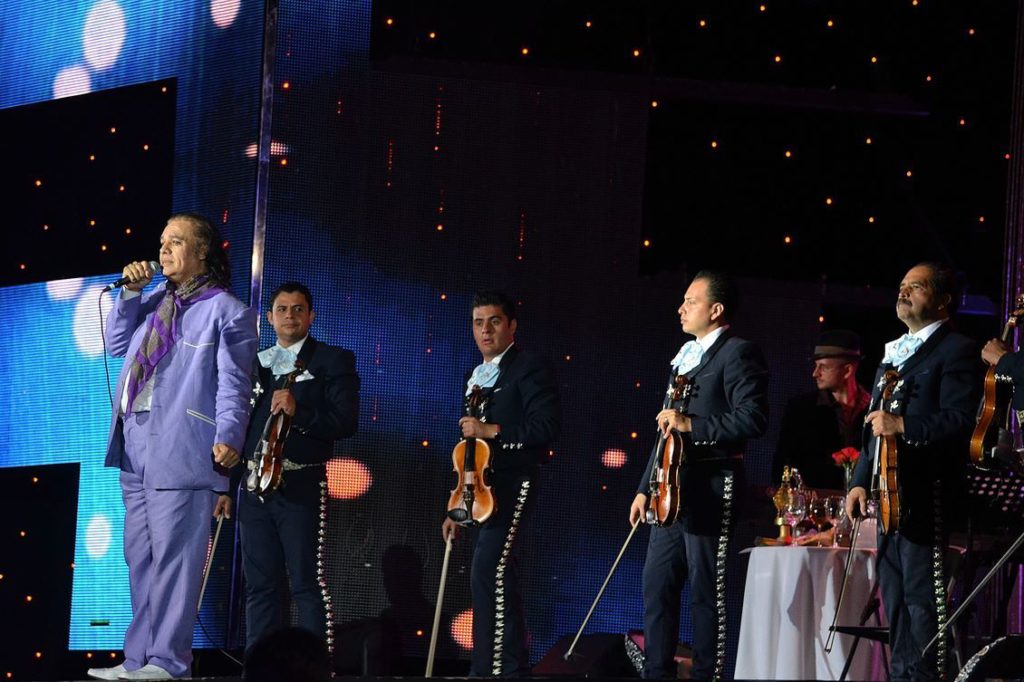An Elegy for Juan Gabriel

*I’ve read many elegies to Juan Gabriel in the last 48 hours and the best aren’t the “learned” ones that include discographies written with cultural authority. The best are the one’s like this, that talk of memories and places touched by an artist that everyone can relate to. VL
![]() By Aaron Sanchez, Commentary & Cuentos
By Aaron Sanchez, Commentary & Cuentos
Juan Gabriel passed away [this week]. Just like Latinas/os across the world, and his non-Latino fans alike, I felt a deep loss. And, just like millennial bicultural Latinas/os in the U.S., his passing felt deeply personal. JuanGa and his music were uniquely familiar—his music was connected to certain people and it was interwoven in our homes. I know I am not the only one who remembers cleaning their house on Saturday or Sunday morning to Juan Gabriel blaring.
For me the music of Juan Gabriel is deeply tied to my mother. She was a fan since she was young, a founder of an early Juan Gabriel fan club as a teen in El Paso, Texas. She went to so many of his concerts I lost count, in places like Juarez, El Paso, even Tacoma, Washington. (where she last saw him). She had all his records and then had them on CD. Even now she has the digital copies of his albums.
[pullquote]He gave my mom and me a shared emotional connection. [/pullquote]As a child, I was a fan too. One of the first songs I learned was “Querida,” which my mom had me perform for all her friends. I would repeat “dime cuando tu” over and over to their laughter. And, just like many millennial U.S.-Latinos, I know that I’m not the only one who as they grew older began to push away from their Latino culture. By middle school, I no longer performed “Querida.” I was listening to The Beatles, Led Zeppelin, and early ‘90s grunge.
When I stopped listening to Juan Gabriel’s music in my early-teens, I also started to push away from my mother. The distancing was similar. I stopped listening to him, in the same way I stopped letting my mom hold my hand in public. I pushed away from his music, a little embarrassed, like when my mom tried to kiss me in public. At home it was one thing, but in public, it was another.
But, just like my mother’s affection, I could never stay away from his music for long. My memories of his music are interwoven in my memories of my mother. I remember her dancing goofily to “Vamos al Noa Noa,” trying to get my brother, sister, and I to laugh in the midst of my parents’ divorce. I remember her playing “Amor Eterno” over and over again after my grandfather, her father, passed away, wiping away tears. She would look past me in thought, and say that her dad used to listen to the same song wistfully and think of his mother after she had passed. I remember her playing me “No me Vuelvo Enamorar” and “No Vale la Pena” after I was sad about a break-up. She would play the songs in the car or at home, encouraging me to belt it out. I would resist and then sing loudly with her, laughing and feeling better.
When I heard the news of Juan Gabriel’s passing, my mother was the first person I called. She had been on the phone with friends and family all day since the news broke, all of them calling to console her. I too called, not sure what to say but incredibly sad. I had never met Juan Gabriel and I am not an expert in his long discography. I felt a loss when Juan Gabriel died, because he has given me so much more than songs.
Read more NewsTaco stories on Facebook. >>
He gave my mom and I a shared emotional connection. In those times of loss and sadness, when we had no words, no way to communicate the emotions we were feeling, he gave us a language, a way to share our feelings that transcended our own ability to do so. In the absence our own words, he gave us his. In the absence of our own voices, he gave us his. In the awkward sometimes difficult silent spaces between mothers and their growing sons, he filled them with his music, always providing a way for us to reconnect again. For this, I will always be thankful. Que descanse en paz Juan Gabriel.
This article was originally published in Commentary & Cuentos.
[Photo via Wiki Commons]

